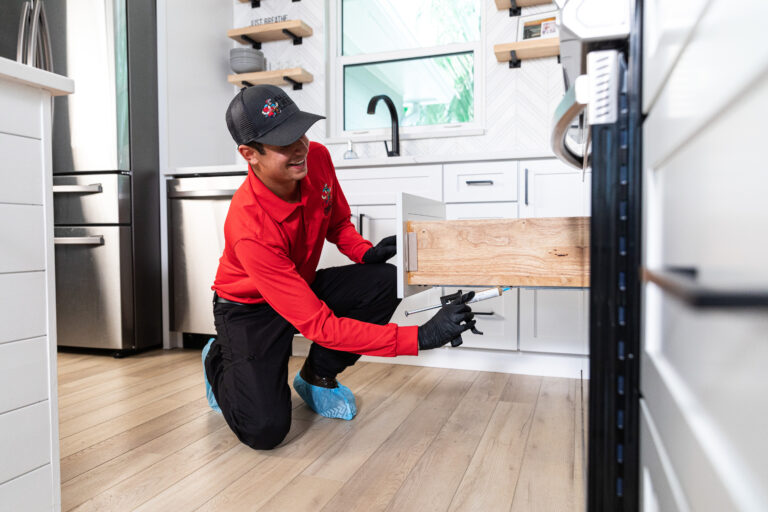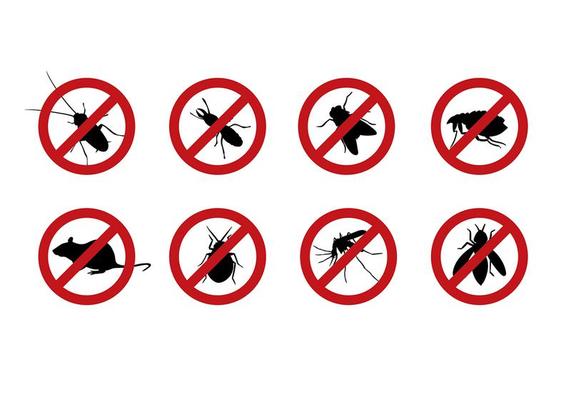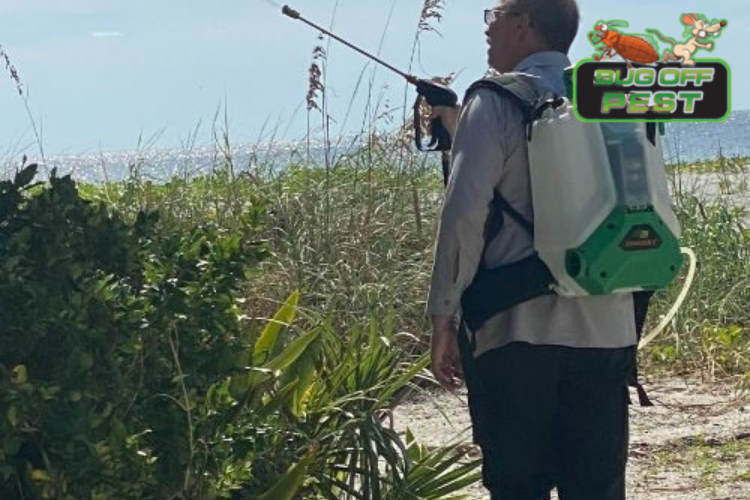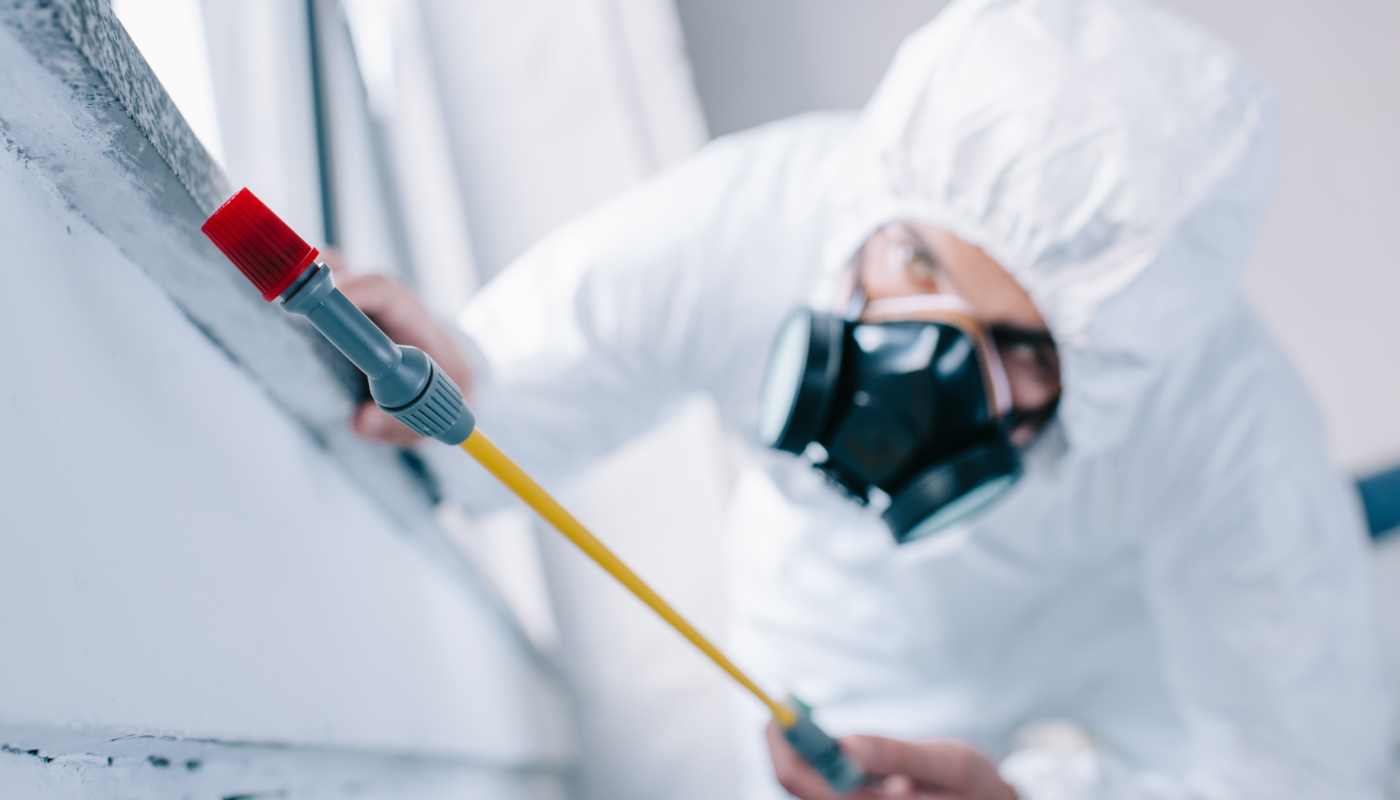Professional Wildlife Removal Services in Port Charlotte to Safely Remove Pests
Wiki Article
Discover the Relevance of Bug Control in Maintaining a Healthy And Balanced Environment and Therapy Techniques

The Function of Pests in Ecological Communities
Bugs, typically seen solely as hassles, play a diverse role in ecological communities that is important for maintaining eco-friendly balance. They add dramatically to numerous environmental processes, consisting of pollination, nutrient biking, and insect control. As an example, lots of insect species, such as butterflies and , are crucial pollinators for a wide variety of plants, which subsequently supports biodiversity and food manufacturing.Additionally, bugs function as victim for numerous predators, developing a crucial web link in food webs. This interdependence makes certain the survival of different varieties and helps control populaces within communities (Termite treatment Port Charlotte). Decomposer bugs, such as specific beetles and fungi, are crucial in breaking down organic issue, hence enriching dirt and promoting nutrition recycling.
Alternatively, while pests can be helpful, their overpopulation or intrusion into non-native environments might disrupt these ecological functions. This intricacy underscores the value of recognizing pest dynamics, as efficient insect administration approaches should think about both their ecological functions and prospective influence on human tasks. Stabilizing pest visibility while decreasing injury is vital for maintaining the honesty of ecological communities and ensuring agricultural productivity.
Health Dangers Connected With Insects
The existence of bugs in different settings extends beyond their eco-friendly duties, as they also position significant health threats to pets and humans. Many pests, consisting of parasites, rats, and pests, are service providers of illness that can have major health effects. For circumstances, rats are understood to transmit hantavirus and leptospirosis, both of which can bring about extreme breathing and renal concerns, respectively.Pests such as ticks and mosquitoes are infamous for spreading out vector-borne diseases like jungle fever, dengue fever, and Lyme disease. These ailments can lead to high morbidity and death rates, specifically in prone populations. In addition, insects like roaches and insects can aggravate allergies and bronchial asthma, contributing to respiratory system issues in people, particularly those with pre-existing problems.
Additionally, the visibility of insects can bring about mental stress and anxiety and discomfort, impacting general well-being. Contamination of food and surfaces by parasite droppings and remains can bring about foodborne diseases, highlighting the value of maintaining sanitary problems. Understanding the health threats associated with insects is vital in recognizing the necessity of efficient bug monitoring strategies to protect animal and human wellness.

Advantages of Reliable Bug Control
Effective bug control is vital for maintaining a secure and healthy setting, as it regularly minimizes the various threats connected with parasite invasions. One of the key benefits of reliable pest administration is the reduction of health and wellness threats.Additionally, reliable pest control safeguards building and structures from damage. Several insects, like termites and woodworker ants, can cause substantial architectural damage that may call for costly repair work. By proactively taking care of these organizations, infestations and property owners can protect their investments.
An additional significant advantage is the improvement of general lifestyle. A pest-free setting adds to psychological health and lowers stress related to infestations. Efficient bug control promotes a much safer environment for children and pets, making sure that homes stay havens totally free from hazardous chemicals and disease-causing organisms.
Common Bug Control Methods

In the world of insect management, different methods are employed to deal with infestations properly. These techniques can be generally categorized right into three major methods: social, mechanical, and chemical controls.
Cultural control entails modifying methods to reduce bug survival, recreation, and establishment. This may consist of crop rotation, correct sanitation, and habitat adjustment, which collectively produce a setting less for pest spreading.
Mechanical control utilizes physical techniques to remove pests (Termite treatment Port Charlotte). Methods such as catches, obstacles, and vacuum cleaners are frequently made use of to straight remove pests from an area. This method is especially reliable for taking care of rats and insects without the use of damaging chemicals
Chemical control includes the application of chemicals to take care of parasites. These materials can be classified right into Pest control services pesticides, fungicides, and herbicides, each targeting specific types of insects. It is vital to make use of these chemicals judiciously, adhering to safety standards and laws to decrease possible injury to non-target varieties and the setting.
Each bug control method has its limitations and advantages, and often, an incorporated approach incorporating numerous approaches produces the most effective lead to maintaining a pest-free setting.
Lasting Bug Management Practices
Sustainable pest management methods include a variety of techniques designed to reduce environmental impact while properly managing insect populations. These techniques prioritize the use of eco-friendly methods over chemical pesticides, thereby reducing the threat of damage to non-target species, consisting of useful insects, wild animals, and people.Integrated Pest Monitoring (IPM) is a foundation of lasting methods, combining organic, cultural, mechanical, and chemical tactics to take care of pests. For example, biological control includes introducing all-natural predators or bloodsuckers to suppress pest populaces. Cultural methods, such as plant rotation and polyculture, interfere with pest life cycles and boost community strength.
Mechanical techniques, such as catches or barriers, can effectively stop pest gain access to without chemical treatment. Furthermore, preserving healthy ecological communities with appropriate dirt management, plant health and wellness, and biodiversity can normally minimize insect problems.
Education and learning and awareness are crucial parts, empowering communities and individuals to acknowledge parasite threats early and execute preventative actions. Termite treatment Port Charlotte. By fostering an alternative technique that stabilizes pest control with ecological stability, lasting bug administration techniques not just protect structures and crops however additionally add to a much healthier environment for future generations
Conclusion

Understanding the health and wellness threats associated with bugs is critical in recognizing the requirement of reliable pest management methods to guard animal and human health.
Efficient bug control is crucial for maintaining a safe and healthy atmosphere, as it regularly reduces the various risks associated with pest problems.Integrated Parasite Monitoring (IPM) is a keystone of lasting techniques, incorporating organic, social, mechanical, and chemical tactics to manage pests. By understanding the role of insects, recognizing involved health threats, and employing diverse treatment strategies, a lasting approach to pest administration can be accomplished. Integrated Bug Monitoring (IPM) emphasizes a holistic method that reduces harm to valuable microorganisms while effectively regulating parasite populaces.
Report this wiki page